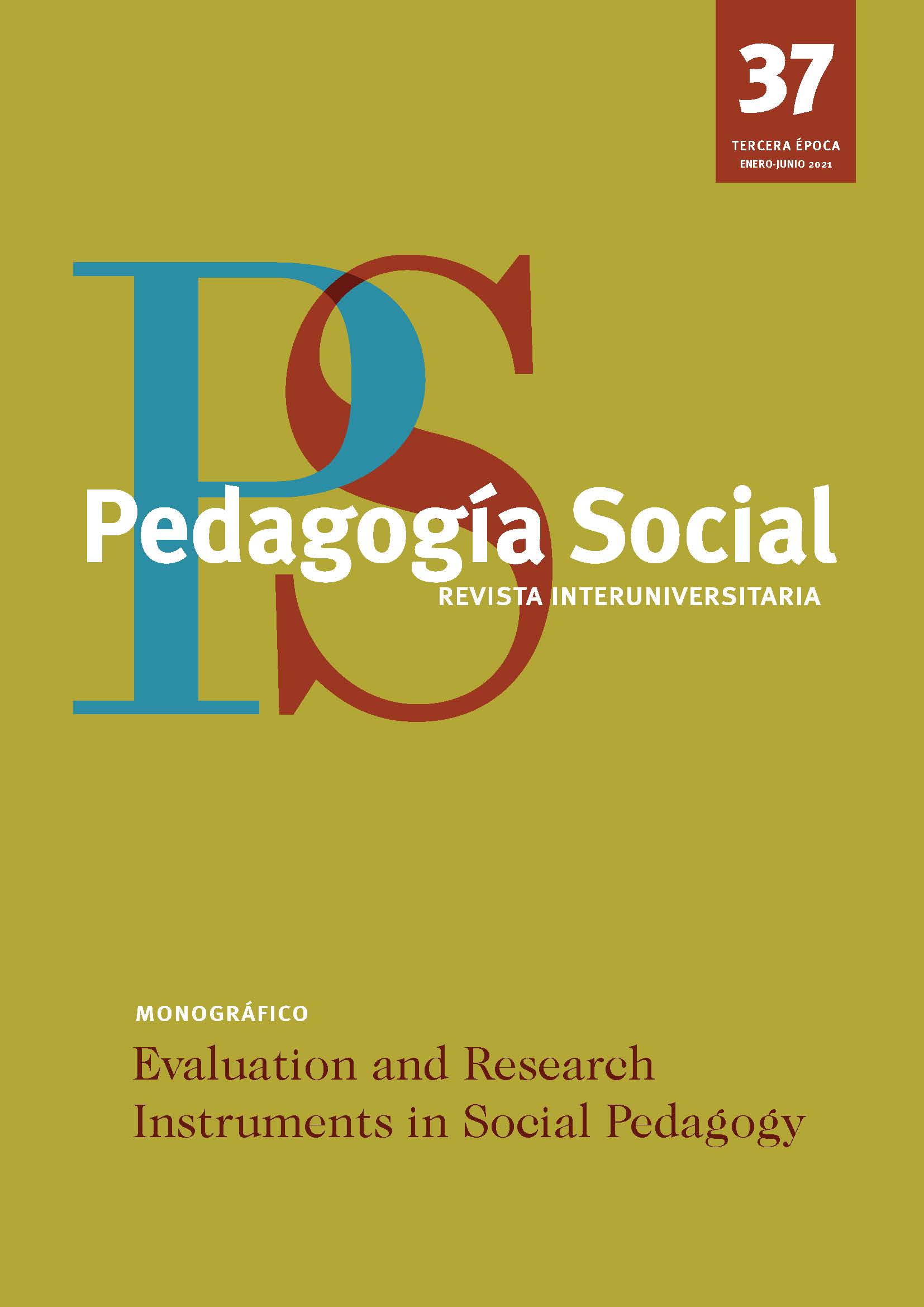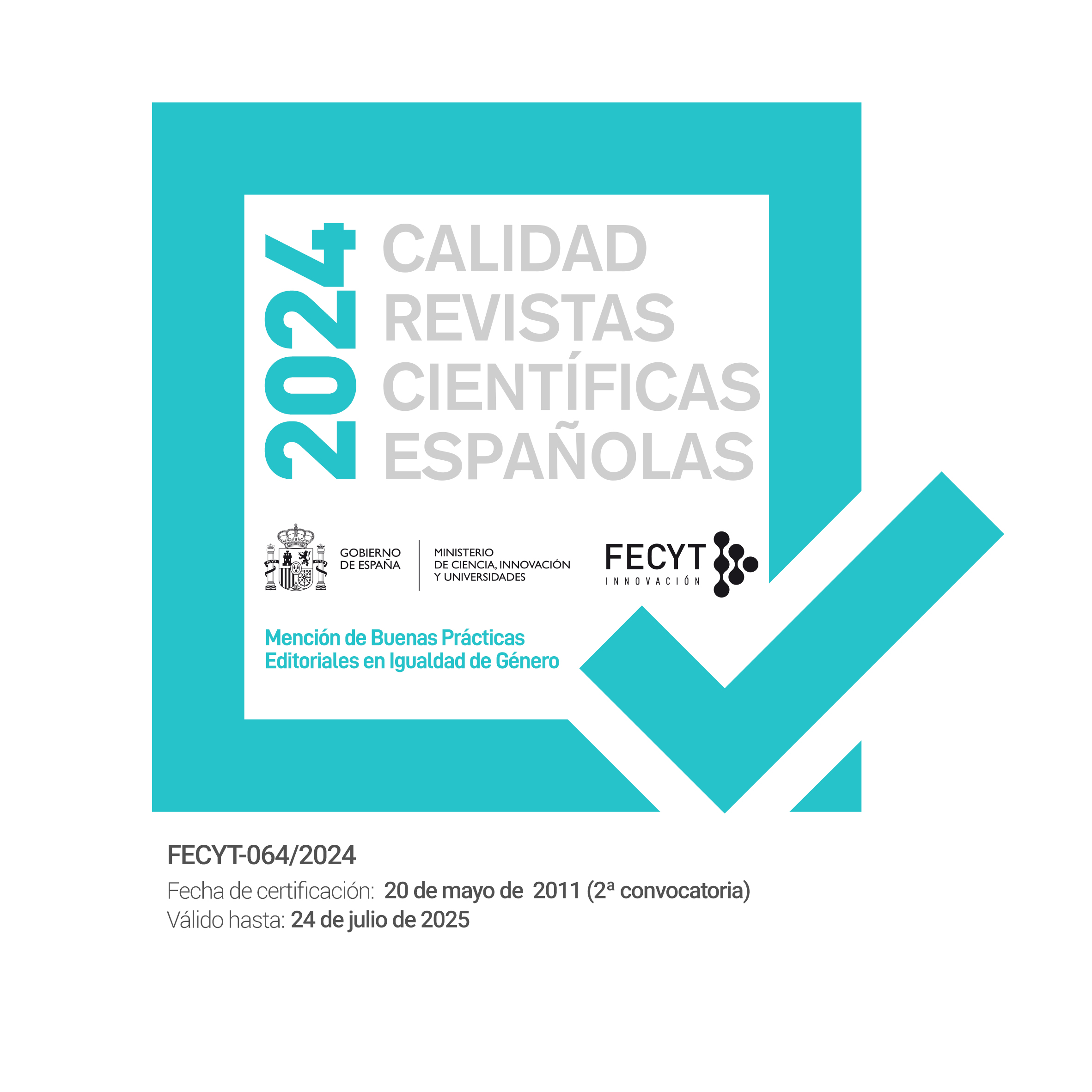Validación de la escala de competencias parentales emocionales y sociales para madres (ECPES-M)
DOI:
https://doi.org/10.7179/PSRI_2021.37.04Palabras clave:
Competencias parentales; Escala; Evaluación; Programas Parentales; Parentalidad Positiva.Resumen
La Recomendación 2006/19 del Council of Europe sobre Políticas de Apoyo a la Parentalidad Positiva y la World Health Organization (2013), constatan la dificultad de las familias de la población normalizada para ejercer sus funciones parentales. Los instrumentos validados para evaluar competencias parentales en estas familias son aún escasos, lo que aconseja incrementarlos para identificar necesidades actuales en las dinámicas de interacción y convivencia familiar. El objetivo de este estudio ha sido validar la Escala de Competencias Parentales Emocionales y Sociales (ECPES). Participaron 2437 madres representativas de una población de 145.902 familias del Principado de Asturias (España) con hijos e hijas entre 0 y 18 años. Para estudiar la estructura factorial o validez de constructo se efectuó análisis factorial exploratorio (AFE) y confirmatorio (AFC); se comprobó su invarianza considerando la etapa evolutiva o escolar de los hijos/as. La consistencia interna o fiabilidad se analizó mediante Alfa de Cronbach. Se analizó la validez concurrente mediante la correlación de Pearson entre los factores resultantes y variables externas seleccionadas como criterio. Se obtuvo una escala de 15 ítems distribuidos en cuatro factores que explican el 42,096% de la varianza: Factor 1-Autoestima; Factor 2-Autocontrol; Factor 3-Agresividad Verbal; y Factor 4-Imposición. Se ofrece un instrumento sencillo y útil en el ámbito de la evaluación e intervención familiar para identificar competencias parentales y su promoción a través de programas de orientación familiar que fomenten la parentalidad positiva. La escala puede aplicarse con madres de la población general desde una perspectiva de promoción e intervención preventiva y anticipadora de dificultades. Puede aplicarse también en situaciones vulnerables. Es útil también para evaluar programas de orientación familiar e identificar evidencias de su eficacia.
Descargas
Descargas
Publicado
Cómo citar
Número
Sección
Licencia
Derechos de autor 2021 Pedagogía Social. Revista Interuniversitaria

Esta obra está bajo una licencia internacional Creative Commons Atribución-NoComercial-CompartirIgual 4.0.
Derechos de reproducción y archivo
La versión publicada de los artículos podrá ser autoarchivada por sus autores en repositorios institucionales y temáticos de acceso abierto. No obstante la reutilización total o parcial de los mismos en nuevos trabajos o publicaciones deberá ser autorizada por Pedagogía Social. Revista Interuniversitaria.
Los trabajos publicados deberán ser citados incluyendo el título de la Revista, Pedagogía Social. Revista Interuniversitaria, nº, páginas y año de publicación.
Responsabilidades éticas
Pedagogía Social. Revista Interuniversitaria no acepta material publicado anteriormente en otros documentos. Los/as autores/as son responsables de obtener los permisos oportunos para reproducir parcialmente material de otras publicaciones y citar correctamente su procedencia. Estos permisos deben solicitarse tanto al autor/a como a la editorial que ha publicado dicho material.
Es obligación de Pedagogía Social. Revista Interuniversitaria detectar y denunciar prácticas fraudulentas.
En la lista de autores/as firmantes deben figurar únicamente aquellas personas que han contribuido intelectualmente al desarrollo del trabajo.
La revista espera que los/as autores/as declaren cualquier asociación comercial que pueda suponer un conflicto de intereses en conexión con el artículo remitido.
Los autores deben mencionar en el manuscrito, preferentemente en el apartado del método, que los procedimientos utilizados en los muestreos y controles han sido realizados tras la obtención de consentimiento informado.
La revista no utilizará ninguno de los trabajos recibidos con otro fin que no sea el de los objetivos descritos en estas normas.
Aviso de derechos de autor/a
© Pedagogía Social. Revista Interuniversitaria. Los originales publicados en las ediciones impresa y electrónica de esta Revista son propiedad del Pedagogía Social. Revista Interuniversitaria, siendo necesario citar la procedencia en cualquier reproducción parcial o total.
Salvo indicación contraria, todos los contenidos de la edición electrónica se distribuyen bajo una licencia de uso y distribución “Creative Commons Reconocimiento-No Comercial 3.0 España” (CC-by-nc). Puede consultar desde aquí la versión informativa y el texto legal de la licencia. Esta circunstancia ha de hacerse constar expresamente de esta forma cuando sea necesario.






